Course Director and Speaker
Martina is the implementation manager of the EURIALO project of the Connectivity and Secure Communications (CSC) directorate at the European Space Agency (ESA), aiming at designing and demonstrating the first satellite-based independent aviation surveillance system.
She also covers the role of system engineer of the Iris programme where, since 2018, she has been responsible for all the system aspects concerning Iris project implementation, targeting the development of a satellite-based communication system for Air Traffic Management (ATM) and the design of its long-term evolution.
Martina joined ESA in 2010 in the Communication systems and techniques section of the RF Payload system division, Technology, Engineering and Quality Directorate where for more than 8 years she has been responsible of many Advanced Research in Telecommunications Systems (ARTES) projects, focusing on high throughput satellite systems end-to-end performance, successfully developing technologies to improve Satellite Communications and contributing to the related standards.
Martina received her M.S. degree, in Telecommunication Engineering from the University of Pisa, Italy, in 2008. Before joining ESA, she worked at M.B.I. s.r.l., a telecommunication company in Pisa, as a communication system engineer.
Course Director and Speaker
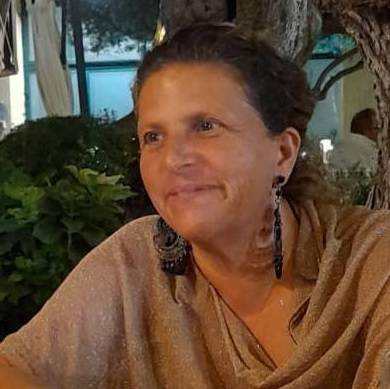
Claudia Anita Maria Fiorentino started her career in the space sector joining Alenia Spazio spa (ALS now Thales Alenia Space Italia) where she has held different positions in the field of Satellite AIV/AIT working 12 years in several GEO and LEO TLC satellite projects (SICRAL, Globalstar, ARTEMIS, Italsat FM2), and LOE OE projects as Radarsat-2 and PRIMA, the TAS “Common Platform” for LEO Earth Observation programmes. She joined the Italian Space Agency (ASI) in 2006 where she has been involved in the Cosmo-SkyMed integrated ASI/It-MoD Programme Office as E2E System Verification Manager of the first generation and then Mission Manager of the Cosmo-SkyMed Second Generation Programme. At ESA since 2017 as Senior Satellite System Development Engineer in the Directorate of Connectivity and Secure Communications (CSC) she is also currently the CSC Directorate Security Officer.
Guest Speaker
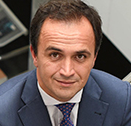
Miguel Manteiga Bautista is the Galileo Programme Manager, inside the Directorate of Navigation of the European Space Agency.
Miguel Manteiga Bautista obtained in 1999 his MSc degree in Telecommunications Engineering from the University of Valencia, Spain.
He also obtained in 2005 an International Executive Master on Business Administration from the IE Business School.
After spending his early carrier in the field of development and deployment of high-speed telecommunication networks in Telefonica SA, he moved to the ESA Galileo Team in 2001.
Throughout the last 23 years, he has developed his career in the Galileo Programme, in a wide variety of positions covering all areas of the Galileo environment (space, ground, user, launcher, system, security, operations, project and programme management).
In 2015, he took over the position of Head of GNSS/Galileo Evolution Programme, he became Galileo Second Generation Project Manager in July 2020 and since 2024 he performs the role of the Head of Galileo Programme Office.
He is responsible for the overall programme-level implementation of Galileo activities at ESA, in close coordination with the European Commission and European GNSS Agency representatives.
Guest Speaker - round table coordinator
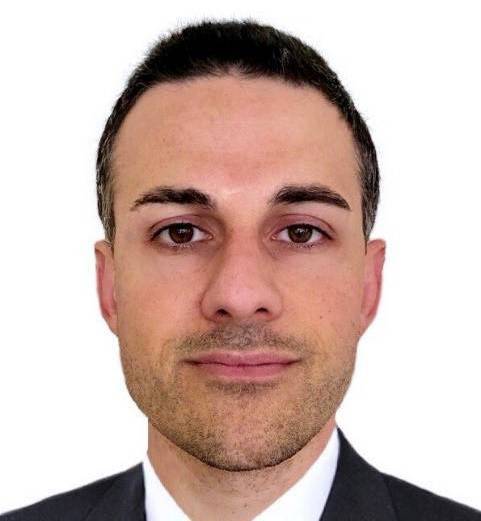 Javier de Pablos has been supporting ESA Member States Industry for the development of novel concepts, technologies and evolution of products and systems in the Satellite Communications domain for more than seven years, in the Connectivity and Secure Communications (CSC) directorate at ESA.
Javier de Pablos has been supporting ESA Member States Industry for the development of novel concepts, technologies and evolution of products and systems in the Satellite Communications domain for more than seven years, in the Connectivity and Secure Communications (CSC) directorate at ESA.
Javier de Pablos has worked in the research and development of satellite solutions since the start of his career. His work focuses on the digital transformation of the satellite ground segment area, in particular, the evolution of satellite management and control, the transition of legacy hardware components to software-based solutions (e.g. Digital IF ecosystem), and the use of new techniques for the orchestration and automation of satellite operations (e.g. Artificial Intelligence).
Javier de Pablos previously held various positions in Industry (GMV, Avanti Communications, Indra). He graduated from the Polytechnic University of Madrid with a degree in Telecommunication Engineering and also holds an MSc and an MBA.
Guest Speaker
ESA
David Gomez Otero is the head of the spac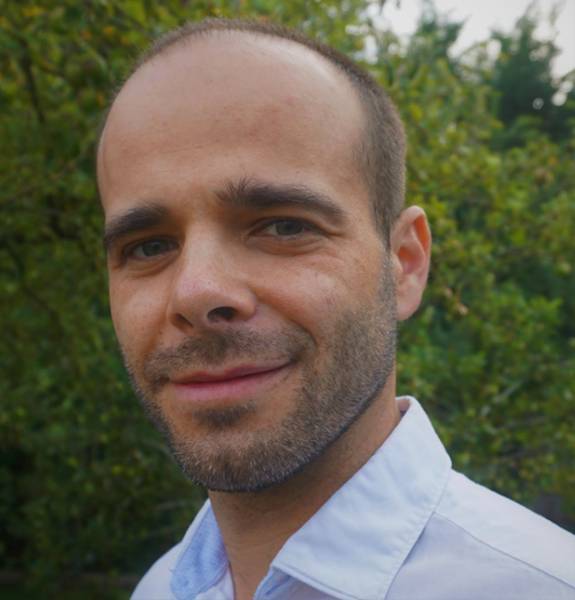 e segment section inside the directorate of Connectivity and Secure Communications (CSC) of the European Space Agency (ESA). David has over 20 years’ experience in telecommunications and space systems and has contributed to the design and development of a hand-full of space missions (e.g. GAIA, GALILEO, METEOSAT, QUANTUM) across different roles in industry and public institutions. In his current role, David supports a wide range of on-board technology and product developments related to telecommunications satellite systems and services, as well as the initiation of new telecommunication concepts and missions.
e segment section inside the directorate of Connectivity and Secure Communications (CSC) of the European Space Agency (ESA). David has over 20 years’ experience in telecommunications and space systems and has contributed to the design and development of a hand-full of space missions (e.g. GAIA, GALILEO, METEOSAT, QUANTUM) across different roles in industry and public institutions. In his current role, David supports a wide range of on-board technology and product developments related to telecommunications satellite systems and services, as well as the initiation of new telecommunication concepts and missions.
Over the past years, David has been leading the technical preparatory work for ESA’s Moonlight initiative, an ambitious project to bring telecommunications and navigation capabilities on the moon, which will support future lunar settlements and maybe become a steppingstone towards human deep space exploration.
David holds a Master’s degree in Telecommunications Engineering from the Polytechnic University of Catalunya (UPC).
Guest Speaker
Barnaby Osborne is the small satellite technology coordinator in the directorate of Connectivity and Secure Communications at the European Space Agency. In this role he actively supports ESA member state industry in the development of new technologies, products and systems that enable future small communications satellite missions. Prior to joining ESA he was an Associate Professor at ISU teaching Satellite Applications, as well as an Associate Professor and Thales chair of small satellite platforms at Supaero in Toulouse. He has held other academic roles in Universities in the UK and in Australia, always in the area of space systems engineering.
Barnaby has a BEng degree in Mechanical and Space Engineering, and a PhD in Microgravity Physics, both from the University of Queensland. His research and professional interests include small satellites, space systems engineering, newspace approaches and microgravity experimentation. Barnaby has authored numerous publications in international peer reviewed journals.
Guest Speaker
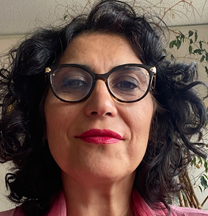 Monica Mezzadri has been working at the European Space Agency since September 2000. For the last four years she has been the head of the Telecommunications and Integrated Applications Procurement Section. Previously Monica has been Head of the Navigation Procurement Service. She has handled satellite procurements on Earth Observation, Navigation, Operations, Telecommunications and Integrated Applications.
Monica Mezzadri has been working at the European Space Agency since September 2000. For the last four years she has been the head of the Telecommunications and Integrated Applications Procurement Section. Previously Monica has been Head of the Navigation Procurement Service. She has handled satellite procurements on Earth Observation, Navigation, Operations, Telecommunications and Integrated Applications.
Guest Speaker
Dr Severin Klinkmüller is a member of the ESA Legal Services Department. He advises the Connectivity and Secure Communications (CSC) directorate on all legal and institutional aspects of ESA’s telecommunication programmes and activities. He also conducts negotiations of international agreements and advises on European Union legal matters.
Prior to joining ESA, Severin has been practising as a lawyer admitted to the bars of Berlin and Paris where he specialised on representing sovereign clients in international disputes. He has also worked at the legal services departments of the European Commission and the German Federal Foreign Office.
Severin holds a PhD in European Union law from the University of Münster, Germany and a Master of Law (LL.M) of the London School of Economics and Political Science.
Speaker
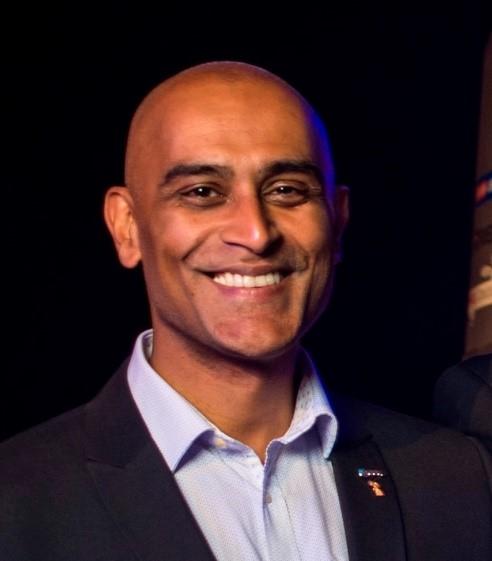
Professor Anu Ojha OBE is a member of the Executive Committee of the UK Space Agency . Included in his portfolio are leadership of the Agency’s International and ESA teams as well as UKSA’s public/parliamentary affairs, communications and education/future workforce programmes.
Prior to joining the Agency and Civil Service in May 2023 he was the founder of the UK National Space Academy programme and a Director of the National Space Centre. Appointed Honorary Professor in the School of Physics and Astronomy at the University of Leicester in 2016, he was co-investigator in the University’s programmes for nuclear power applications for exploration as well as the development of new technologies for planetary drilling. He also has extensive experience in analysis from ESA’s Rosetta, Mars Express and SOHO missions and was Principal Investigator for the ESA/UKSA Astro Academy Principia education experiment suite conducted by Tim Peake during his mission to the International Space Station. He continues to teach on the University’s MSc course in Space Exploration Systems specialising in human survival in extreme environments and helped develop and teaches on the University’s new undergraduate-level Fundamentals of Space training course for space professionals.
From 2018 to 2023 he was a member of ESA’s Human Spaceflight and Exploration Science Advisory Committee (HESAC) working with the Director and Executive of ESA’s human and robotic exploration directorate. He was a member of the final site selection team for the ESA Rosalind Franklin mission targeted for the Oxia Planum region of Mars and has helped develop ESA’s science exploration strategies for human and robotic exploration of the Moon and Mars.
Since 2020 he has supported MOD Space Directorate and UK Space Command in a number of areas related to skills development, space capabilities and international perspectives through both his ESA experiences and his long-standing participation as a leader of the UK-China Joint Laboratory in Space Science and Technology. In addition to being a member of STFC Council from 2018-2024, he was also invited by the UK Secretary of State for Defence to contribute to the Integrated Review of Security, Defence, Development and Foreign Policy.
Prior to joining the space sector in 2008 Anu spent fourteen years as a state high school science teacher and also with British Forces Cyprus. During this time he was appointed as National Lead Practitioner for Physics by the Specialist Schools and Academies Trust and was also Assistant Headteacher/Advanced Skills Teacher at the largest school in England at the time. He was appointed OBE for services to science education in 2014 and co-led the National Space Academy/Loughborough College team that shared the Queen’s Anniversary Prize 2023 – the UK’s highest national honour in education.
Anu has been a British Skydiving member since 2000, has completed over 1400 jumps and was involved as a science consultant for the Red Bull Stratos stratospheric skydive programme in 2012. Since 1993 he has led many high-altitude expeditions in India and Nepal and his other interests include scuba/free diving, triathlon, amateur astronomy and contemporary world politics.
Guest Speaker
SES
Mr. Ruy Pinto was appointed Chief Technology Officer (CTO) at SES in January 2019. He had been the Deputy Technology Officer since 2017 and took on the additional role of Chief Information Officer (CIO) at SES in 2018, responsible for starting a Digital Transformation program at SES.
Mr. Pinto joined SES from Inmarsat where he covered various technical and managerial roles between 1990 to 2016, including two years as CTO of the company. His last position at Inmarsat, from December 2013, was Group Chief Operations Officer (COO), responsible for all Inmarsat operational functions.
His external positions portfolio included two years as the Chairman of UKSpace, the UK space industry trade association, and four years as a Director and VP of Space for the Association of Defence, Security and Aerospace Companies (ADS).
Mr Pinto has just completed a six-year appointment as Non-Executive Director of the Space Application Catapult, established by the UK government to foster the development of space applications in the UK. Previously, Mr. Pinto worked with VSAT data communication networks and data communications software. Mr. Pinto holds a degree in Electronics Engineering and completed post-graduate studies in Digital Telecommunications Systems, both from the Rio de Janeiro Catholic University (PUC-RJ).
Mr. Pinto is a dual British and Brazilian national.
Guest Speaker
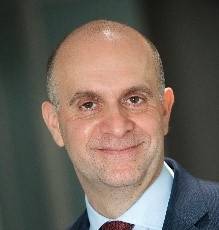 EUTELSAT
EUTELSAT
Cristiano Benzi is SVP Global – Professional Video at Eutelsat, the global Satellite Operator based in Paris.
Cristiano is an expert in TV Production and broadcasting technologies and during his 24 years spent within Eutelsat has held positions in Procurement, Operations, Marketing and Product Development, Sales and Sales Support.
Prior to joining Eutelsat Cristiano has worked for 7 years as a researcher for RAI Radio Televisione Italiana, specializing in the design of future Broadcasting Systems and supporting the development of the DVB set of Standards.
Cristiano represents Eutelsat at the DVB Steering Board, is Administrator of the French FAVN (Forum Audiovisuel Numérique) and served as the Chairman of the Italian HD Forum during a 3-year mandate.
Guest Speaker
Patrick is a satellite systems engineering leader with expertise in adapting terrestrial mobile communications technology for use over satellite as well as the design and operation of large-scale multi-beam satellite communications networks.
Patrick has been at the Mobile Satellite Services Operator Inmarsat, which has now been acquired by Viasat, Inc., for the last 20 years in a variety of roles in Operations, Product Strategy, Research and Development covering ground-segment, user terminal and satellite network operations.
Prior to Inmarsat, Patrick was an engineering manager working on fixed and broadcast telecommunications satellite payloads at EADS Astrium (now Airbus Space and Defence). Patrick holds an BSc and MSc in Physics from the University of Birmingham.
Guest Speaker
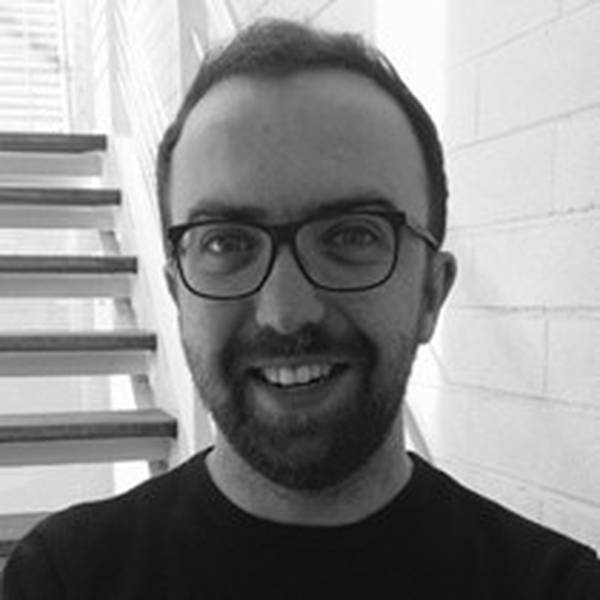 Dr John E Ward holds a Ph.D. in Experimental Astrophysics from University College Dublin and has over six years of postdoctoral research experience working on ground-based gamma-ray telescopes in Arizona and La Palma, as well as NASA cosmic-ray balloon experiments launched from the Swedish Arctic and Antarctica.
Dr John E Ward holds a Ph.D. in Experimental Astrophysics from University College Dublin and has over six years of postdoctoral research experience working on ground-based gamma-ray telescopes in Arizona and La Palma, as well as NASA cosmic-ray balloon experiments launched from the Swedish Arctic and Antarctica.
Transitioning from academia, he has worked for Spanish and Irish space start-ups in diverse disciplines from systems engineering and project management to business and product development, working on nanosatellites and avionics systems for launchers and ESA scientific missions.
Currently at Spire, he is the Senior Director of Research and Development and leads the company's strategic R&D developments focusing on long-term technology advancement for future success and competitive advantages.
Guest Speaker
Avanti
Paris’ 17-year career to date has focused on satellite communications. Paris is currently the Director of Systems Engineering Space at Avanti Communications, responsible for Operations and Engineering activities related to Avanti’s space segment, and encompassing responsibilities such as operations planning, capacity and resource management, end-to-end design and dimensioning, to name a few.
Paris has previously held the posts of Capacity Manager and Senior Satellite Communications Systems Engineer at Avanti Communications, as well as Strategic Services Lease Engineer at Inmarsat and Research Fellow at the University of Surrey.
Paris holds a BEng in Electronics and Electrical Engineering from Glasgow University, as well as an MSc in Mobile and Satellite Communications and a PhD in Satellite Communications, both from the University of Surrey.
Guest Speaker and business case simulation coordinator
Stewart’s career began in 1992 with Thales as non-space System Engineer, becoming a software specialist for military systems. In 2000 he joined SciSys (now CGI) to design and develop software solutions for Space include notable ESA missions such as Rosetta, Mars-Express, Beagle-2, SMART-1 (lunar), EUMETSAT 3rd Generation and Galileo (navigation). Since 2014 Stewart has been a businessman, at-first selling software solutions. He rejoined Thales Alenia Space in 2019 to develop strategy and help sell satellite propulsion and satellite systems. He is Deputy Head of Strategy Sales and marketing at Thales Alenia Space in the UK.
Guest Speaker
 Constellation Architect
Constellation Architect
Thales Alenia Space
Jean-François Boutillon, from Thales Alenia Space, is a senior constellation system architect. He has been working on constellations for more than 12 years, on many different constellations (including Iridium, lightspeed, O3B…) from early capture phase to full turnkey constellation project. He has initiated several tools for constellation sizing and architecting(capacity computation, optimal coverage under constraint, optimal ground segment …). Jean-François Boutillon is also involved in training futures generations of engineers by giving courses in universities and engineering schools, and by training newly hired people in Thales Alenia space that aim at working in constellations.
Guest Speaker and business game coordinator
Christian Prete is a Senior Satellites Systems Engineer with more than 15 years of experience currently acting as the Strategic Marketing Manager in Telecoms at Thales Alenia Space. He joined TAS in 2020 as a Satellite Systems Engineer, where he held the position of Satellite Architect for Telesat Lightspeed constellation.
Throughout his career, Christian has focused on the development of Telecommunication, Earth observation, and Science missions, interfacing and collaborating with major satellite system players in both Europe and the US. His expertise spans the handling of Thermal Subsystems, Satellite AIT/V, and Systems Engineering for both GEO and LEO missions, covering the entire lifecycle from mission definition to in-orbit operations. In 2023, he transitioned to Marketing and Sales to contribute to TAS's capture efforts on IRIS2.
Christian held various positions in European Industry (OHB, SSTL, Hispasat, Airbus). He earned his Aeronautical Engineering degree from Universidad Nacional de La Plata in Argentina and is currently pursuing an MBA (2024) and a Master's in Fintech (2025).
Guest Speaker
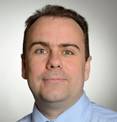 Airbus
Airbus
Glyn has the role of lead engineer for the key Airbus programme : Enhanced Mobile Broadband and Very High throughput Satellites. This programme includes the development of new generation of digital processors, active antennas, preparation for future MILSATCOM missions and the extension of our E3000 NEO platform to higher power.
Glyn is a Senior Expert in flexible, processed and HTS payloads, and is using this capability to co-ordinate an end to end approach to the design development and specfiction of end to end future flexible high throughut payloads.
Glyn was deputy chief engineer for Airbus Defence and Space payload equipment’s division during the period 2010 to 2014. Glyn previously managed research and development where he generated a number of key patents in the fields of flexible communications payloads.
Prior to this Glyn worked in both systems engineering and microwave design roles on the RADARSAT 2 Synthetic Aperture RADAR system. Glyn graduated from St. Andrews University with a degree in theoretical Physics and also holds a Master’s degree in Microwave Solid State Physics.
Guest Speaker
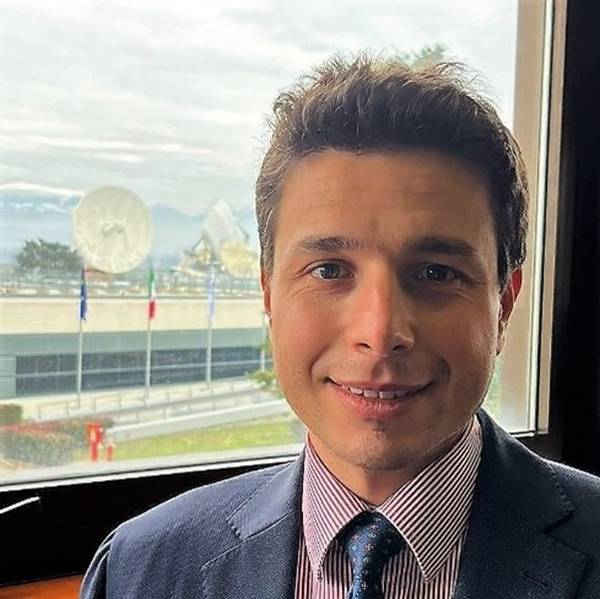 In Telespazio, Andrea is currently Vice President of Commercial Development in the Satellite Systems and Operations Line of Business. He is responsible for Business Development and Sales of space mission ground segment and operations towards the commercial space sector. He also focuses on development of new missions during study and de-risking phases for innovative domains such as Space Exploration, In Orbit Services and Secure Communications. Moreover, he is in charge of the transnational Space Domain Awareness Integrated Project Team. From 2014 to 2016, Andrea was based in Washington and responsible for International Sales of teleport and hosting services within Telespazio North America subsidiary. Previously, he has worked in the Marketing and International Business Development division of Telespazio. He holds a master degree in Mechanical Engineering from University of Pisa and a master in Global Strategy and Security from the University of Turin and Centre for Higher Defence Studies (CASD).
In Telespazio, Andrea is currently Vice President of Commercial Development in the Satellite Systems and Operations Line of Business. He is responsible for Business Development and Sales of space mission ground segment and operations towards the commercial space sector. He also focuses on development of new missions during study and de-risking phases for innovative domains such as Space Exploration, In Orbit Services and Secure Communications. Moreover, he is in charge of the transnational Space Domain Awareness Integrated Project Team. From 2014 to 2016, Andrea was based in Washington and responsible for International Sales of teleport and hosting services within Telespazio North America subsidiary. Previously, he has worked in the Marketing and International Business Development division of Telespazio. He holds a master degree in Mechanical Engineering from University of Pisa and a master in Global Strategy and Security from the University of Turin and Centre for Higher Defence Studies (CASD).
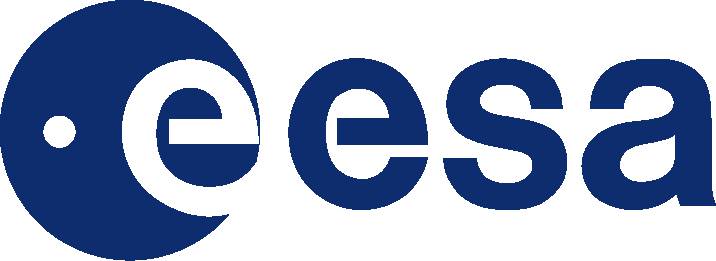 This course gives a complete introductory overview of satellite communications and navigation.
This course gives a complete introductory overview of satellite communications and navigation.
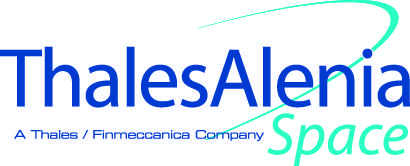

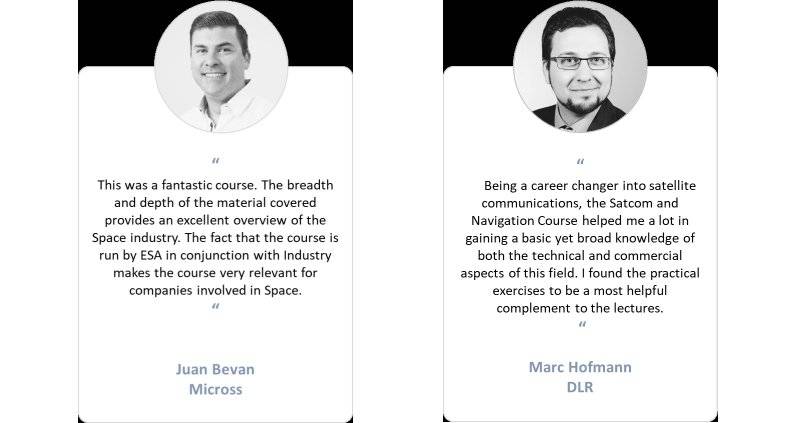
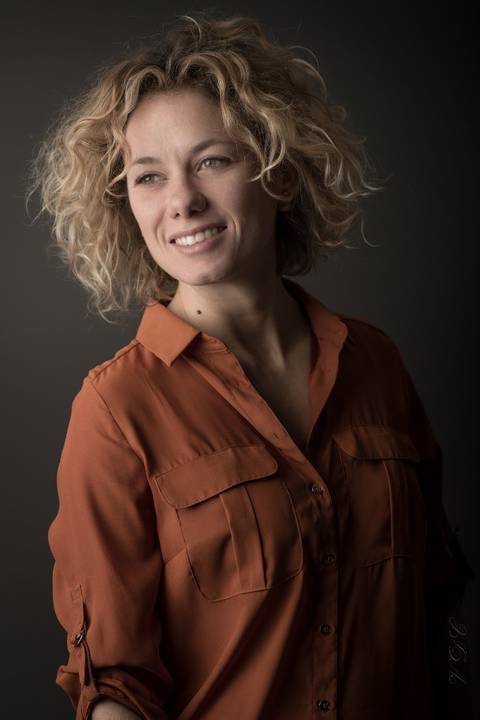


 Javier de Pablos has been supporting ESA Member States Industry for the development of novel concepts, technologies and evolution of products and systems in the Satellite Communications domain for more than seven years, in the Connectivity and Secure Communications (CSC) directorate at ESA.
Javier de Pablos has been supporting ESA Member States Industry for the development of novel concepts, technologies and evolution of products and systems in the Satellite Communications domain for more than seven years, in the Connectivity and Secure Communications (CSC) directorate at ESA. e segment section inside the directorate of Connectivity and Secure Communications (CSC) of the European Space Agency (ESA). David has over 20 years’ experience in telecommunications and space systems and has contributed to the design and development of a hand-full of space missions (e.g. GAIA, GALILEO, METEOSAT, QUANTUM) across different roles in industry and public institutions. In his current role, David supports a wide range of on-board technology and product developments related to telecommunications satellite systems and services, as well as the initiation of new telecommunication concepts and missions.
e segment section inside the directorate of Connectivity and Secure Communications (CSC) of the European Space Agency (ESA). David has over 20 years’ experience in telecommunications and space systems and has contributed to the design and development of a hand-full of space missions (e.g. GAIA, GALILEO, METEOSAT, QUANTUM) across different roles in industry and public institutions. In his current role, David supports a wide range of on-board technology and product developments related to telecommunications satellite systems and services, as well as the initiation of new telecommunication concepts and missions.
 Monica Mezzadri has been working at the European Space Agency since September 2000. For the last four years she has been the head of the Telecommunications and Integrated Applications Procurement Section. Previously Monica has been Head of the Navigation Procurement Service. She has handled satellite procurements on Earth Observation, Navigation, Operations, Telecommunications and Integrated Applications.
Monica Mezzadri has been working at the European Space Agency since September 2000. For the last four years she has been the head of the Telecommunications and Integrated Applications Procurement Section. Previously Monica has been Head of the Navigation Procurement Service. She has handled satellite procurements on Earth Observation, Navigation, Operations, Telecommunications and Integrated Applications.
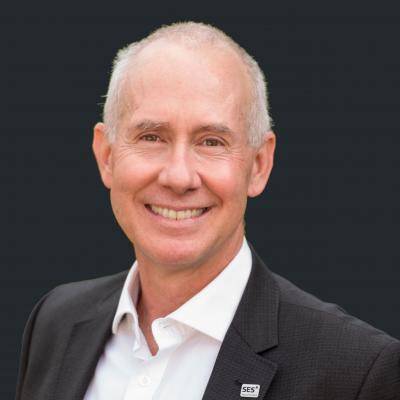
 EUTELSAT
EUTELSAT 
 Dr John E Ward holds a Ph.D. in Experimental Astrophysics from University College Dublin and has over six years of postdoctoral research experience working on ground-based gamma-ray telescopes in Arizona and La Palma, as well as NASA cosmic-ray balloon experiments launched from the Swedish Arctic and Antarctica.
Dr John E Ward holds a Ph.D. in Experimental Astrophysics from University College Dublin and has over six years of postdoctoral research experience working on ground-based gamma-ray telescopes in Arizona and La Palma, as well as NASA cosmic-ray balloon experiments launched from the Swedish Arctic and Antarctica.
 Constellation Architect
Constellation Architect
 Airbus
Airbus In Telespazio, Andrea is currently Vice President of Commercial Development in the Satellite Systems and Operations Line of Business. He is responsible for Business Development and Sales of space mission ground segment and operations towards the commercial space sector. He also focuses on development of new missions during study and de-risking phases for innovative domains such as Space Exploration, In Orbit Services and Secure Communications. Moreover, he is in charge of the transnational Space Domain Awareness Integrated Project Team. From 2014 to 2016, Andrea was based in Washington and responsible for International Sales of teleport and hosting services within Telespazio North America subsidiary. Previously, he has worked in the Marketing and International Business Development division of Telespazio. He holds a master degree in Mechanical Engineering from University of Pisa and a master in Global Strategy and Security from the University of Turin and Centre for Higher Defence Studies (CASD).
In Telespazio, Andrea is currently Vice President of Commercial Development in the Satellite Systems and Operations Line of Business. He is responsible for Business Development and Sales of space mission ground segment and operations towards the commercial space sector. He also focuses on development of new missions during study and de-risking phases for innovative domains such as Space Exploration, In Orbit Services and Secure Communications. Moreover, he is in charge of the transnational Space Domain Awareness Integrated Project Team. From 2014 to 2016, Andrea was based in Washington and responsible for International Sales of teleport and hosting services within Telespazio North America subsidiary. Previously, he has worked in the Marketing and International Business Development division of Telespazio. He holds a master degree in Mechanical Engineering from University of Pisa and a master in Global Strategy and Security from the University of Turin and Centre for Higher Defence Studies (CASD).